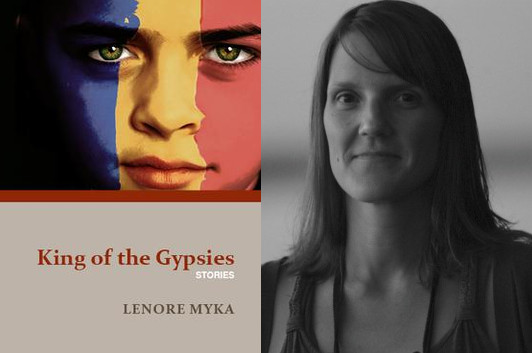Tobias Buckell: Cordwainer Smith’s Otherwordly Stories

photo: Marlon James
I’ve known Tobias Buckell for several years now, ever since a mutual friend alerted me to his first two novels, Crystal Rain and Ragamuffin. His new collection, Xenowealth, gathers together a number of stories set in the same world as those novels, a future where humanity has settled on other planets, but the cultures that have shaped those settlements aren’t the usual American/Western European templates seen in so much science fiction. When Tobias sent me this essay, I was delighted to see that he was writing about Cordwainer Smith; like him, I was entranced by my very first reading of Smith growing up in the ’80s, but for many years it was next to impossible to find any of his work without diligently hunting through the sci-fi sections of used bookstores… or in the way that he fell into Tobias’s hands.
I have an odd education in that I didn’t have really good access to solid libraries and bookstores growing up. That’s because I grew up on a boat in the Caribbean. So what books I got my hands on were often loaned to me by sailors coming through on boats from places far afield. I met people from the South Pacific, Europe, Africa, the Americas all passing through the harbor I grew up in.
They had these little mini-libraries in marinas or off in the corners here and there. Libraries that were just denoted by a sign that said “take a book, leave a book.” And once I had enough books, I prowled these limited shelves, poring over them for any science fiction or fantasy.
It was rare to find anthologies, but these were always treasured because they had a wide range of instant text nuggets. Stories could vary wildly, from prosaic to mind-blowing, in a single page turn. So when I came across a collection of stories by one Cordwainer Smith I wasn’t sure what I was going to get. The book looked old, which was always worrying. I was reading in the late 1980s. The golden age stuff could be fun, but usually read unintentionally funny to me, which its square-jawed, omnicompetent men and 1950s sf-nal vocabulary.
So here’s this story, “The Game of Rat and Dragon,” that starts off: “Pinlighting is a hell of a way to earn a living.” Humans throw themselves into space, “planoforming” ships skipping through the dark, and begin descended upon by what they perceive as dragons. But to their companion cats, thrown out as attack fighters, they’re rats.
18 January 2016 | selling shorts |
Lenore Myka’s Tough, Scrappy Old Ladies

photo via Lenore Myka
The stories in Lenore Myka‘s King of the Gypsies are rooted in an uneasy intersection of American and Romanian culture, with characters from each nation struggling to make sense of each other and of their experiences. As she wrote, Myka explains in an interview, “I just tried to keep in mind what I knew about my friends’ lives there and what I had observed and experienced as a Peace Corps volunteer living at essentially the same standard as my colleagues and friends. I tried to be empathic but also true to what I inherently felt about day-to-day living in a post-communist country.” In doing so, her stories are set in often brutal circumstances, but, as she mentions in that same conversation, “ultimately my stories are about resilience, and in resilience there is always hope.” In this guest essay, Myka reveals some of the other writers who’ve helped her understand how to create characters with the kind of complex resiliency you’ll find throughout this collection.
When people unfamiliar with but desirous of reading short stories ask me to tell them my favorites, my brain goes blank. Ask me what I least like—now that’s a much easier question to answer. But a favorite anything—color, food, hobby, place—unnerves the generalist in me. Doesn’t it depend on the weather, the day of the week, whether or not you’ve had your morning cup of coffee, your mood?
Sure, there are the usual suspects: “The Things They Carried” by Tim O’Brien; “Pale Horse, Pale Rider” by Katherine Anne Porter. Lorrie Moore, Stuart Dybek, Deborah Eisenberg or, further back, Chekov, Mansfield, Faulkner, Hemingway. I’m leaving dozens of my favorites out here; the list becomes unruly. Lest we get cynical about contemporary literature, there are, in fact, many great short story writers, old and new, out there. There will no doubt be many more to come.
The frustration and beauty of being a writer is that you are always learning. My own writing projects/puzzles often determine my current list of favorites; these favorites become my teachers. Right now, I am studying character and so am obsessed with Grace Paley, Jane Gardam, Mavis Gallant. I like tough, scrappy old ladies because I hope one day to be one. Mostly, I feel that I am trying always to write towards these authors, to emulate in my own work something that might distantly echo the near-perfection they achieve.
11 October 2015 | selling shorts |

 Our Endless and Proper Work is my new book with Belt Publishing about starting (and sticking to) a productive writing practice.
Our Endless and Proper Work is my new book with Belt Publishing about starting (and sticking to) a productive writing practice. 
